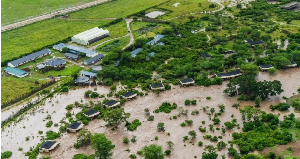Health News of Tuesday, 1 July 2014
Source: GNA
Action Plan on Newborn Deaths launched
A new global action plan “Every Newborn Action Plan (ENAP), has been launched here in Johannesburg to serve as the latest evidence on effective interventions for a clear road-map to end preventable stillbirths and newborn deaths.
The Action Plan, which was approved by Ministers of Health from all over the world at the May 2014 World Health Assembly, brings together the Landmark global action plan outlines strategy, to prevent 2.9 million newborn deaths and 2.6 million stillbirths annually.
To meet 2035 newborn survival goals, more than 90 countries must accelerate progress; of those, 29 countries must more than double current rates of progress in policy and private sector commitments to save newborn lives.
Launching the action plan, Ms Graca Machel, Former First Lady of South Africa and the current Chair of the Partnership for Maternal, Newborn and Child Health (PMNCH) said investments in quality care at birth could save the lives of 3 million babies and women each year who die needlessly around the world.
The forum on the theme “Accelerating Progress; Envision the Future” , builds on two months of high level meetings held in Toronto, Prague and Washington DC, where global leaders and health experts met to discuss strategies to promote the health of women and children.
Over 800 leaders and health experts attending this two-day meeting will discuss steps to assist countries that have lagged behind in efforts to improve reproductive, maternal, newborn and child health and make specific recommendations to maintain the focus on women and children within the post 2015 development agenda.
Participants will also, after the deliberations, pledge their financial and policy support as well as new resources to support the implementation of the new “Every Newborn” action plan, which serves as a road-map to improve newborn health and prevent stillbirths by 2035.
Globally, the world has been slow in improving outcomes from newborns and each year, 2.9 million newborns die within their first 28days of life, out of these, 2.6 million are stillbirths. According to the Lancet, 15, 000 babies are born and die every day without ever receiving a birth or death certificate.
Again, 3million maternal and newborn deaths and stillbirths in 75 high burden countries could be prevented each year with proven interventions that can be implemented for an annual cost of only US$ 1.15 per person.
Mr Machel explained that whilst maternal and child mortality rates have improved dramatically over the last two decades, newborns have missed out on this attention. “Newborn deaths now account for 44 per cent of all under-5 deaths worldwide.
The day of birth is the time of greatest risk of death and disability for babies and their mothers, contributing to around half of the world’s 289,000 maternal deaths”. Accompanying the launch of the ENAP is a package of approximately 40 financing, policy and service delivery commitments, showcasing multi-stakeholder interest and recognition of the need to invest in newborn health.
These commitments represent a significant contribution to the Every Woman Every Child movement (EWEC) and underscore the sustained determination by the global community to ensure accelerated progress towards the Millennium Development Goals (MDGs), and women’s and children’s health in particular.
The report calls for critical attention to be given to the 29 slowest progressing countries—most of which are in sub-Saharan Africa, adding, “If current trends continue, it will be more than 110 years before an African baby has the same chances of survival as a baby born in North America or Europe.
Progress in Africa has been three times slower than what has been achieved in high-income countries, even before the advent of intensive care or the new simpler interventions, such as Kangaroo Mother Care or steroid injections for preterm labour. Ms Machel, endorsed the vision of the Every Newborn action plan and urged countries to use it as a guide and road-map to accelerate progress.










